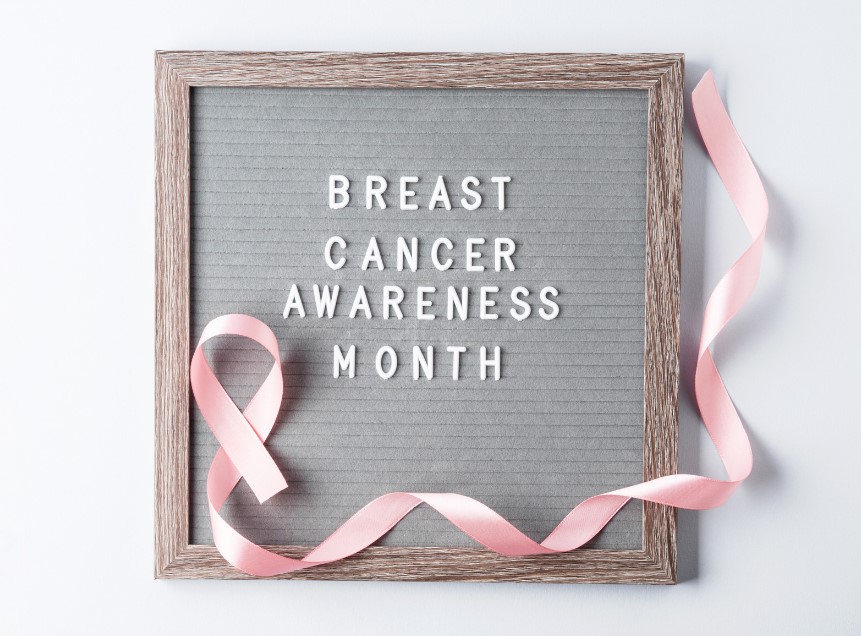During October, patients, families and survivors rally together to encourage everyone affected by breast cancer and to spread awareness of life-saving screening measures. Even in our beautiful Big Sky Country, around 920 Montana women are diagnosed with breast cancer each year, according to the Montana Department of Health and Human Services, and an average of 140 Montana women die per year because of it. There’s no doubt that breast cancer stretches across our state and affects us all. Find your strength this month by taking screening measures that could save your life.
First, let’s start at home. Breast cancer occurs when abnormal cells begin to grow uncontrollably in one or both breasts. Both men and women can develop breast cancer and the most common symptom is a new lump or mass, often noticed during regular activities such as dressing or showering. Paying attention to your body is a great asset to your health in all situations, since you are your best advocate. In this case, any time the appearance or feeling of your breast changes, make sure you report it to a healthcare provider right away. As you keep your breast health in mind, add into your schedule the crucial piece to breast cancer detection: screening. To prevent late-stage cancer, early detection is key, and one of the frontline screening methods is your regularly scheduled mammogram.
2023 is a landmark year for mammogram screening guidelines. In May, the U.S. Preventive Services Task Force revised their breast cancer screening recommendations, advising women with average risk of breast cancer to start regular mammograms at age 40 instead of age 50. By starting annual mammograms sooner, earlier detection will help women catch, treat and defeat breast cancer before it progresses. The American Cancer Society now recommends the following:
- Women between 40 and 44have the option to start screening with a mammogram every year.
- Women 45 to 54 should get yearly mammograms.
- Women 55 and older can switch to a mammogram every year or choose to continue yearly mammograms, as long as she is in good health and expected to live at least 10 more years.

Getting your mammogram is easier than you think. Our Logan Health Medical Center offers Walk-In Mammography Service Monday through Friday from 9 a.m. to 4 p.m. You can also sign up here to schedule it at your convenience. And for those who can’t come to us, we come to them. Our Winkley Mobile Mammography team travels all over Montana to specific outreach sites, working with local health departments to help women get screened.
In order to learn more about your personal risk for breast cancer, you can also schedule an appointment for genetic counseling and testing. This is especially important for those who have a personal or family history of breast cancer, but anyone can receive these screenings. Even for those who already have a diagnosis or history of cancer, genetic testing can still impact their healthcare decisions, such as what treatments they may be eligible for.
When you start genetic counseling, your counselor will help you choose the right test according to your risk factors and advise you on possible results and their meanings. If you have changes in your genetics that increase your risks of developing cancer, you will be referred to a high-risk clinic so that they can help you monitor for it. Anyone with an increased risk of breast cancer can be a part of the high-risk breast cancer clinic. This clinic is run by Dr. Carrie Thompson and she is especially proud of their personalized approach: “Each time that the patient comes in for surveillance, time is spent reviewing the updated screening guidelines. And then we do this process of shared decision-making. Here are the recommendations. Here are the risks. What would you like to do? Then we help them navigate the system to get them what they need.” Click here to learn more about genetic services offered at Logan Health.
With all of these tools, our communities are better equipped than ever to catch breast cancer in the early stages. This Breast Cancer Month, we encourage you to talk to your provider about breast cancer screenings, spread the word about our local screening resources and support those affected by breast cancer with love and hope.
The above content is sponsored by Logan Health. To learn more about sponsored content, email [email protected].
